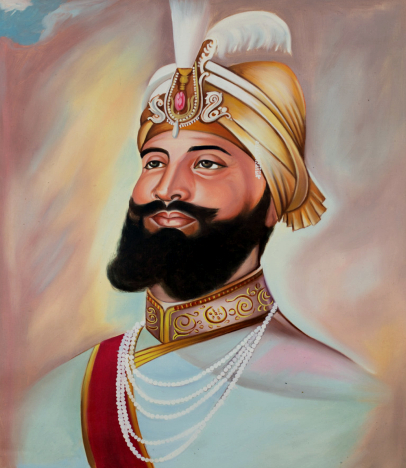
Guru Gobind Singh Jayanti is celebrated to commemorate the birth anniversary of Guru Gobind Singh, the last of the 10 Sikh Gurus. It is an auspicious day for the Sikhs in Goa and across the world.
LIFE
Guru Gobind Singh, the son of the ninth Sikh Guru, Guru Tegh Bahadur, is said to have been born on December 22, 1666, in Patna, according to the Julian calendar. However, according to the Nanakshahi calendar, his birth falls in the Saptami Tithi, during the Shukla Paksha in the month of Poh (Paush). Hence, the date changes according to the Gregorian calendar. This year, it will be celebrated on January 20.
Throughout his life, Guru Gobind Singh stood up and fought against the injustice of Mughal rulers who ruled then. Hence, his leadership and courage inspired people to rise against the oppressive rule of the Mughals.
Before his death on October 10, 1708, he declared the Guru Granth Sahib, the Sikhism's Holy Scripture, to be the permanent Sikh Guru.
TEACHING
Guru Gobind Singh was a philosopher, writer, poet, military and spiritual leader. He penned a large body of literary work. His teachings had a big impact on Sikhs and other religions. He is remembered for his contributions to the Sikh faith. His teachings are relevant at any given point of time.
His teachings include:
1. Kisae dee ninda, chugalee, atae eirkhaa nahee karnee: Do not gossip, nor slander, or be spiteful to anyone.
2. Dhan, javaanee, tae kul jaat da abhiman naee karnaa (Nanak daadak tahe duae goath. Saak guroo Sikhan sang hoath): Do not be proud of riches, youthfulness or lineage. (Regardless of maternal and paternal caste or heritage, all of the Guru's Sikhs are siblings of one family.)
3. Dushman naal saam, daam, bhaed, aadiak, upaa vartnae ate uprant udh karnaa: When dealing with enemies, practice diplomacy, employ a variety of tactics and exhaust all techniques before engaging in warfare.
4. Pardaesee, lorvaan, dukhee, apung manukh dee yataahshkat seva karnee: Do as much as possible to serve and aid foreigners, those in need, or trouble.
5. Putaree da dhan bikh jananaa: Realise that considering a daughter as property is poison.
6. Dasvand denaa: Donate a tenth of your earnings.
7. Chugalee kar kisae da kam nahee vigaarnaa: Do not ruin anyone's work by gossiping.
He is said to have composed the Dasam Granth, a short title of Dasven Pādśāh kā Graṅth (The Book of the Tenth Emperor, i.e., Spiritual leader). It is a compilation of hymns, philosophical writing, Hindu mythological tales, autobiography and erotic fables, written in Braj Bhasa, Hindi, Persian, and Punjabi.
He is also the one who consecrated the Guru Granth Sahib as the fundamental Scripture of the Sikh religion.
He established the Khalsa group. The word ‘Khalsa’ means 'pure'. Joining the Khalsa is a sign of commitment in Sikhism, an example of Seva, a willingness to serve others without thought for one’s own well-being.
The five features of the Sikh faith or the Panj Kakar are attributed to him. The five K’s (five articles which identify a Sikh, who has been initiated into the Khalsa are the five items that are worn on the body. They are Kesh (uncut hair), Kanga (comb), Kada (iron bracelet), Kaccha also spelt as Kacch or Kachera (cotton undergarment) and Kirpan (a small sword).
CELEBRATION
The Sikhs usually have a special prayer meeting on this day at the Gurudwaras in Goa and all over the world. Talks or lectures are also organised on Guru Gobind’s life, teaching, and poetry recitals are also held. It is also customary to organise processions escorting the Guru Granth Sahib on a special pedestal, during which the Sikhs sing devotional songs, share sweets and sharbat among the adults and children, irrespective of their faith. Special dishes are also prepared on this day.
Many families hold Kirtans at home with family members and friends. Some do Seva, charitable behaviour, such as preparing food and distributing it among the needy, though other forms of charity are also acceptable.
(The writer is the former director of Thomas Stephens Konknni Kendr at Porvorim)